Reducing Blood Pressure Quickly – Saves A Life Fast
As an Amazon affiliate, I earn from qualifying purchases at NO extra cost to you.
Today I’ll kick things off by talking about high blood pressure. Did you know it is often dubbed as the ‘Silent Killer’? You might wonder why it’s got such a foreboding nickname. At high peaks reducing blood pressure quickly is crucial. 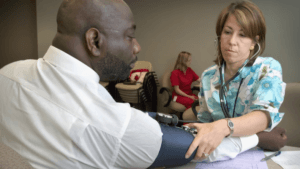
Reducing Blood Pressure Quickly
Well, it’s because this condition is So, reducing blood pressure quickly, helps prevent serious mishaps. Although it is symptomless, it potentially leads to serious health problems like heart disease and stroke.
It’s a stealthy risk factor that may slip under your radar, and that’s precisely why awareness and management are crucial.
The Consequences of High BP are Devastating
Did you know that about 1 in 3 adults in the United States has high blood pressure? That’s a significant chunk of the population! It’s important to recognize that anyone can be affected, regardless of age or background. High blood pressure doesn’t play favorites. 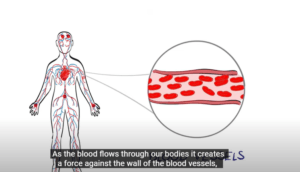
Management is Quintessential
Managing your blood pressure isn’t just about avoiding problems. You also have to protect and enhance your overall health and quality of life. By keeping your blood pressure in check, you’re taking a big step towards a healthier heart and arteries. This will pay dividends in the long run.
Now, you’re probably thinking about how to start taking control of your blood dish. a link to high-pressure today. That’s where we transition into our next section.
Lifestyle changes create immediate impacts on your blood pressure levels. There are some practical steps to take to ensure a health BP reading.
Lifestyle Changes for Immediate Impact
If you’re looking to see a noticeable difference in your blood pressure numbers, shifting your lifestyle will yield quick results. I’ll provide you with some effective, actionable steps that go beyond mere theory. These steps are grounded in scientific research and practical experience.
Dietary Adjustments are Required
Diet changes are a strong starting point. Increasing your intake of fruits and vegetables is the first step. Next, cut back on foods high in saturated fats and sodium. This makes a real difference. 
Avoid Highly Processed Foods
It’s not just about what you add but also what you reduce. Try limiting your consumption of processed foods. These changes lower blood pressure relatively fast, and you’ll likely feel better overall.
Get Moving 30 Minutes a Day
The benefits of physical activity can’t be overstated when it comes to blood pressure. However, you’re not required to run marathons. Even moderate-to-vigorous walking or cycling helps. Check out the ones at your local gym or purchase one when they go on sale on Amazon.
The key is consistency. Just 30 minutes of exercise a day, most days of the week, helps improve your heart health and reduce blood pressure. 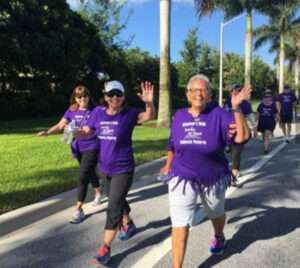
Avoid Stressful Environments
Now, let’s talk about stress. We know that it’s a part of life. The thing is, chronic stress wreaks havoc on your blood pressure. Managing stress isn’t just about relaxing in front of the TV, though. You also need active stress reduction techniques.
Here are a few suggestions such as:
- Yoga
- Deep breathing exercises
- Engage in hobbies that you enjoy
Find out what helps you unwind, and make it part of your routine.
Improve Your Sleep Habits
Lastly, remember that good sleep is not a luxury—it’s a necessity. Poor sleep affects your blood pressure, so aim for 7 to 8 hours of quality rest each night.

Quit Smoking
And if you smoke, know that quitting smoking is perhaps one of the best things you can do for your blood pressure and overall health.
In the next section, I’ll take you through some specific dietary adjustments that helps in reducing your blood pressure quickly. These aren’t drastic overhauls but small, manageable changes that will significantly impact your numbers.
Dietary Adjustments to Lower Blood Pressure Fast
If you’re aiming to reduce your blood pressure quickly, tweaking your diet can be a great start. Food isn’t just fuel; it’s also medicine. What you eat directly affects your blood pressure. A change in diet has a significant impact on your numbers.
Include Potassium in Your Diet
Potassium plays a critical role in managing blood pressure because it helps balance the amount of sodium in your cells. You’ll learn about foods that are rich in potassium. So, incorporate these foods into your diet. 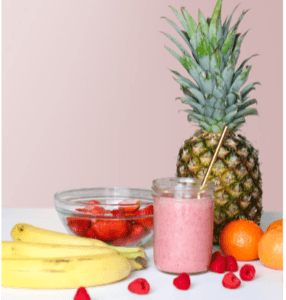
Add these fruits and vegetables to your diet:
- Bananas
- Oranges
- Cantaloupes
- Spinach
- Sweet potatoes
Regularly include these in your meals. This helps you maintain a healthy blood pressure balance.
Reduce Your Sodium Intake
Reducing sodium intake is another effective strategy. However, it is more than just ditching the salt shaker. You also have to be vigilant about the hidden sodium in processed foods. Also, avoid pre-cooked or packaged foods that have a longer shelf-life.
My High Blood Pressure Story
From past experience, I can write a book on the causes of high blood pressure. Oftentimes, we forget all about the food choices we make. When I lived alone in my early twenties, I was basically addicted to highly processed junk foods.
Way Too Much Junk Foods
Firstly, because these treats are extremely cheap and so very yummy, they are always there when you need a quick comfort food fix. I found myself stocking up on huge bags of Lays potato chips, Cheetos, Little Debbie treats, lots of fried foods (KFC, Dunkin doughnuts), and Circle K pre-made sandwiches, sodas, and candy. The more overtime I put in, the more junk I ate. I was stress eating and didn’t realize it.
Of course, I made myself a salad whenever I had the time. However, when it was time to have my yearly physical, my high blood pressure was always an issue that needed attention. This became a regular pattern up until my blood pressure reached a critical level. 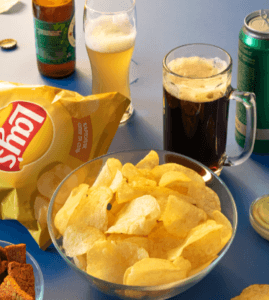
My Yearly Physicals Saved My Life
In retrospect, I am grateful to my employers. Had I not been forced to pump the brakes on unhealthy foods, no telling where I’d be today. For the past 20 years, I worked in a mental health capacity, helping individuals become productive contributors to society despite their disabilities and shortcomings.
This field requires empathy, hope, and lots of patience. Whether I liked it or not, it was my bread and butter. In fact, it helped me pay my rent and keep food on the table. However, I kind of felt right at home in a sense. I grew up with a stepbrother who was born with polio.
Stress at Worksite
However, this profession gets stressful at times. You have to keep your eyes and ears open at all times and never let the clients out of your site.
One of my worst days was when I was grabbed from behind by one of the newer residents. He caught me off guard while helping another individual. Luckily, another co-worker was standing close by. I never saw this coming. 
After this incident, I chose to go back to school to learn computers. Luckily for me, my doctor had given me a long talk about the dangers of high blood pressure. This talk led me to adopt a new, healthier lifestyle.
The Moral of the Story
Never take your health, youth, or your blood pressure for granted. Get regular check-ups, and if necessary, don’t get upset if you have to take hypertension medications for a while.
High blood pressure is nothing to play with and, if not checked, leads to dire consequences. Sodium is especially dangerous for people with high blood pressure.
Switch to Low-Sodium Products
- Look for low-sodium versions of your favorite products
- Get into the habit of Checking food labels
- Choose to cook at home more often
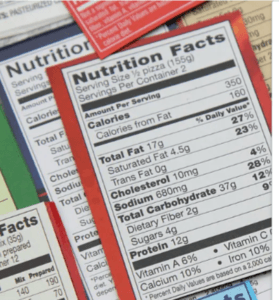
Taking these precautions gives you complete control over how much salt goes into your food and into your body.
Drink Adequate Amounts of Water
Hydration is essential for a healthy body. By the way, the choices you make at the water cooler influences your blood pressure.
Skip the Sugary Drinks
Skip the sugary sodas and opt for water or herbal teas. If you enjoy a cup of coffee, you’re lucky because moderate coffee consumption is good for your heart. On the other hand, too much caffeine is bad.
Make Gradual Adjustments to Your Lifestyle
Keep in mind that sudden, sweeping changes to your diet are tough to stick to. Don’t worry too much about perfection. Make gradual adjustments and choose something that resonates with you and your lifestyle. This way, you’re more likely to maintain these healthier choices in the long run. Being active also counts. Why not try a treadmill?
Natural Remedies and Their Efficacy
When looking to lower blood pressure quickly, you’ll be tempted to turn to natural remedies and supplements. It’s a bustling market packed with options that promise to help. I’ll make every effort to help you sift through the noise.
Have You Tried Herbs?
I’ve found that certain herbs such as garlic, hawthorn, and fish oil supplements have reported benefits when it comes to lowering blood pressure. They work by improving arterial health or reducing artery stiffness. Plus, there’s research out there to back up these claims.
Meditation and Breathwork
On top of herbs, meditation and controlled breathing exercises are powerful tools. Studies show that stress plays a huge role in blood stress levels, so tackling that head-on with calming techniques makes a real difference. 
And guess what? They are cost-effective and manageable for most people.
Breathwork
Breathwork refers to various breathing exercises and techniques that are believed to have physical, mental, and emotional benefits. The practice of breathwork involves consciously controlling and manipulating the breath in specific patterns or rhythms.
Here’s a detailed overview of breathwork and some common techniques:
1. Diaphragmatic breathing (belly breathing):
This technique involves breathing deeply into the abdomen, allowing the diaphragm to move downward and filling the lungs from the bottom up.
It is believed to promote relaxation, reduce stress, and improve oxygen delivery to the body. 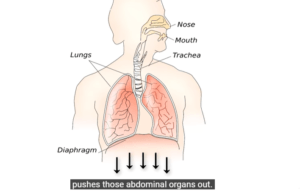
To practice diaphragmatic breathing, place one hand on the belly and inhale slowly through the nose, allowing the abdomen to expand. Exhale slowly through the mouth, feeling the abdomen contract.
2. Box breathing (four-square breathing):
This technique involves inhaling, holding the breath, exhaling, and holding the breath again, with each phase lasting the same count (e.g., 4 counts).
It is used to promote calmness, reduce anxiety, and improve focus.
To practice box breathing, inhale for a count of 4, hold the breath for 4 counts, exhale for 4 counts, and hold the breath for 4 counts before repeating the cycle.
3. Alternate nostril breathing (Nadi Shodhana):
This yogic breathing technique involves using the thumb and ring finger to alternately open and close the nostrils while breathing.
It is believed to balance the left and right hemispheres of the brain, reduce stress, and promote mental clarity.
To practice alternate nostril breathing, use the right thumb to close the right nostril and inhale through the left nostril. Close the left nostril with the ring finger, release the thumb, and exhale through the right nostril. Repeat the cycle, alternating nostrils.
4. Ocean breath (Ujjayi breath):
This breathing technique involves slightly constricting the back of the throat to create a subtle oceanic sound.
It is used in yoga practice to promote focus and concentration, as well as to build internal heat.
To practice ocean breath, inhale and exhale through the nose while constricting the back of the throat to create a soft, ocean-like sound. 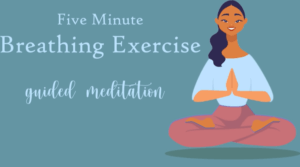
5. Breath counting:
This technique involves counting each inhalation and exhalation cycle, typically up to a count of 10 or less.
It is used to promote mindfulness, focus, and concentration.
To practice breath counting, inhale and exhale slowly, counting each cycle. If the mind wanders, gently return to counting breaths from the beginning.
6. Breath pacing:
This technique involves consciously controlling the pace and rhythm of the breath, often syncing it with physical movement or a specific cadence.
It is used in various practices, such as yoga, martial arts, and meditation, to enhance focus, coordination, and mind-body awareness.
Breathwork is often practiced as part of meditation, yoga, or other mindfulness practices.
These benefits include all of the following:
- Reducing stress and anxiety
- Improving focus and concentration
- Increasing energy levels Promoting overall well-being
However, starting slowly and gradually building up the practice is important. Breathwork for a beginner may be intense and could cause lightheadedness or discomfort if practiced incorrectly or too vigorously.
Seek Professional Advice
However, not all natural remedies are created equal and aren’t a substitute for professional medical advice or prescribed medication. It’s crucial to consult with a healthcare provider before starting any new supplement or intense stress-reduction practice.
If you have a history of heart issues or are already on medication, make sure that your doctor has a heads up about your condition.
Get Expert Medical Advice
Let’s move on to when it might be time to step up the game and get some expert medical advice. Sure, diet and lifestyle changes alongside natural remedies work wonders, but sometimes, they’re not enough on their own. So, let’s talk about that next. 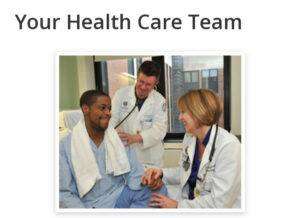
When to Seek Medical Intervention
While the above methods may contribute to lowering your blood pressure quickly, it’s crucial to know when it’s time to get professional help. If your blood pressure readings consistently fall in the high range (typically 140/90 mm Hg or above), it’s indicative that you should consult a healthcare provider.
Blood pressure medications are life-saving, and they play a critical role in managing hypertension, especially in cases where lifestyle changes alone are insufficient.
These medications work in various ways to help lower blood pressure, and you’ll often see results quite rapidly. But remember, these are not a substitute for healthy lifestyle choices.
Besides, I’m here to help you understand the importance of regular health check-ups and monitoring. Health professionals offer personalized advice and treatment plans. They also track your progress, making adjustments as necessary to keep your blood pressure within a safe range.
Final Thoughts
Professional Guidance is Beneficial
And don’t forget the peace of mind that comes with knowing a professional is guiding your journey towards better health.
Combining informed self-care with professional guidance is the best approach to managing high blood pressure. So, if you notice any concerning symptoms or there’s a persistent elevation in readings, don’t hesitate to reach out to your doctor.
Your health is invaluable, and taking proactive steps to protect it is always worth the effort.
Founder, Rachele
mybluegenes.com





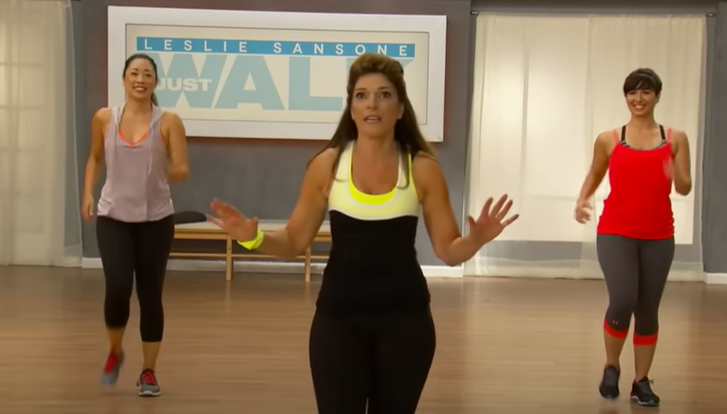
Thanks for sharing.
Rachele